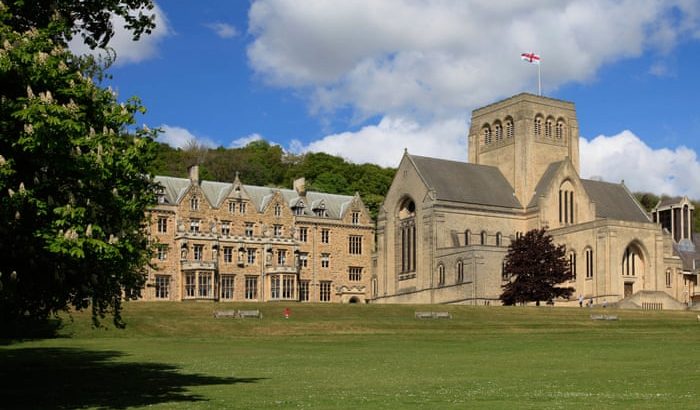Ampleforth College: The Emergence of Ampleforth College as the ‘Catholic Eaton’
by Peter Galliver (Gracewing, £12.99)
Ampleforth College in Yorkshire over the past centuries as often been called ‘the Catholic Eton’, though this title might well be disputed by those who went to Stonyhurst.
However, this short book is subtitled ‘We must look to Ampleforth for the lead’. This sentiment was uttered in an earlier time when Catholic education in the Benedictine tradition was seen as of great importance. The intention of the major Catholic school was to educate young men (and these days young women) for leadership in the nation’s affairs who could stand four square with those from the College of Holy Mary near Windsor and the other so called English ‘public schools’.
This was an important matter when towards the end of the 18th Century the Catholic community saw the penal laws ameliorated. Already established schools returned from Europe, and helped build an emerging ‘Catholic England’, based the rising middle class as well as the surviving Catholic aristocracy from the Middle Ages.
The author brings the skills of trained historian to what is intended as a labour of love”
But times change. Today it is often thought that such ‘elite’ schools have no place in a modern democratic society. One doubts this. In a truly free and a truly open society the education of all in whatever way they would like ought to be a vital factor in a multicultural society.
There remain many people (as headmasters of boarding schools of all kinds know) for whom such schools are not merely a choice but a necessity. Children of broken marriages often find a sort of refuge from familial turmoil among long established and persistent traditions. Parents working abroad also find them ideal.
Vitality
Peter Galliver taught from 1988 to 2000 at the college, where he was Head of History. He brings the skills of trained historian to what is intended as a labour of love to remind people not only of the past of Catholic education, but its vitality for the future.
This book derives from his doctoral research at Leeds completed in 2000, and so retains much of the character of an academic study rather than an historical narrative.
The future of religious schools will always present challenges which will have to be faced”
However, though he focuses on his own college, he gives an account of the adventures and misadventures of Catholic education in England since the Reformation.
He breaks off in the first three decades of the last century. so the future does not concern him. But for those it does concern, and they are many – heads, teachers, clergy and parents – will find this a very interesting study.
In a society where religion itself seems to be challenged, the future of religious schools will always present challenges which will have to be faced, and eventually resolved. In this context Peter Galliver’s account of one Catholic tradition of education will be of great value.
Peter Costello is the author of a history of Clongowes Wood College.


 Peter Costello
Peter Costello Ampleforth College
Photo: The guardian/Alamy
Ampleforth College
Photo: The guardian/Alamy 